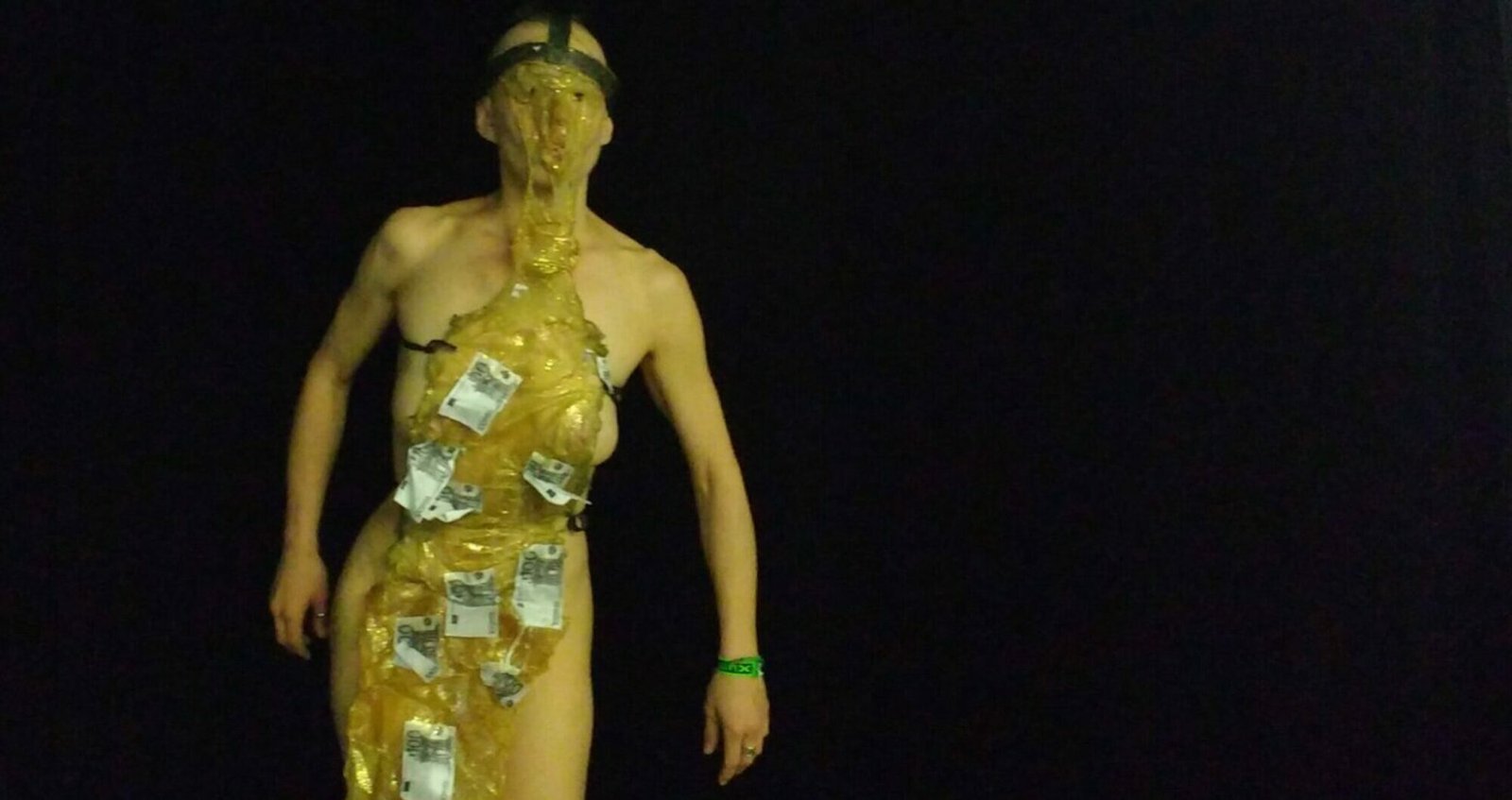I could be speculating about the US establishment dismantling the US establishment, but I’m tired of talking about who is and who is not ESTABLISHMENT. Moreover I’m sick of talking about the US elections, which only substantiates the self-generating idea that the US runs the world.
No, instead I want to talk about how established systems of borders and control cannot continue to be used in the context of delivering aid to people who are victims of those borders and controls in the first place. How do we expect to build new ways of interacting and forming solidarities if we continue to hide poor people from view, while we monitor and control aid in the hyper-sensitive ways which we seem to be doing?
Specifically, I want to address the matter of providing donations to refugees in the context of current migration flows. I have worked in several different locations in Europe volunteering my time and in each one I have seen the same systems reproduced, presumably due to the challenge of distribution with “fairness”. Unfortunately, such systems are all too often paternalistic, racist, and at least stressful and unpleasant. They take the agency away from those that receive aid and ask aid workers to perform acts of control that border on fascist.
I am sorry to be even making the critique, because I believe so strongly in the will of these organizations and civil society who honesty believe they are doing the best that they can, and who definitely want to be doing the best they can for refugees. But somehow, there is still entrenched violence.
It’s not unusual that people who receive aid get abused by givers. Any person who has visited a government aid office can give testimony that the experience is so traumatic that they aren’t sure it’s worth it, even though they can’t survive without help in today’s economy. It is par for the course when you ask for money, you’ll be verbally bashed and disrespected, made to feel like a failure, shamed for being poor.
What I’ve seen inside refugee aide centers is not this level of abuse, but a much more subtle disdain for those who express a desire to choose what they get, who ask for something extra, who take “too much” time, who don’t play exactly by the rules or talk back to an aide worker suggesting that perhaps the policy is a bit over-regulated.
The problem presumably emerges from a lack of donations, a lack of money to pay volunteers who grow quickly frustrated with the resources granted to them. In most donation centers, volunteers are asked to strictly manage who gets what and how much they get. In one place, I was asked to make sure that no Roma people, who were standing outside the fenced in center, were allowed in. When once I “accidentally” gave clothing to a Roma person, I was reprimanded. I responded that I could not tell the difference between a Roma and a refugee—they were speechless. (Given the lack of legal definition afforded to the term Refugee, one could argue that Roma are refugees, but I wont go into that).
Several times, when passing out food, I was told that I shouldn’t give more than one item to a person; that we would run out. If I took out the entire box of, for example, granola bars, I was told that this would produce chaos, as each person would grab for several bars. The “food” in and of itself, was nothing to hoard. It was, if anything, a nicety; hardly a meal.
Similarly, in the distribution of clothing, my experience has been that refugees are not allowed to enter the clothing area. All the clothing is organized similarly to a small Salvation Army or Goodwill Store, full of clean but used clothing, organized by size and “gender” (just one of the ways that we also benignly bolster the established logic of the gender binary). In my experience, I have been allowed only to interact with refugees across a desk, who request their size and preferred color (though, this, sometimes, is deemed as suspect because its “asking too much”). Lets not mention the various difficulties inherent in translation and differences in clothing sizes around the world, thats nothing.
It is my job to then bring them the requested item—one by one. There are generally no dressing rooms for anyone who would like privacy or would like to know how an item fits. Each item has to be presented individually, which takes time and energy, and eventually both persons become very exhausted with the interaction. Naturally, “even migrants” have an idea of what they would like and feel comfortable in, because migrants are humans. But so many aid networks appear to be entrenched in the message that “beggars cant be choosers”. Refugees are often hassled into accepting something they don’t really like, or rushed out because they are taking too much time, or insulted because they haven’t taken “whats good for them.”
It’s gross, frankly.
What’s more, refugees are sometimes given vouchers which limit what they can take, how much and how often, as though they would otherwise clean out the donations in one visit. These vouchers and systems of control are meant to be enforced by volunteers, some of whom are there for just hours at a time, who must check off what, how much and when certain things are received. Given that these systems of control are so-decentralized, and volunteers don’t feel a sense of instant “seniority”, they capitulate to these systems without much manipulation. They even, in my experience, participate in telling colleagues how the system is meant to run, and point out when mistakes have been made—basically doing the job of superiors without even being asked. It’s thus very difficult to try to covertly subvert systems when apparently few people are critical of it.
More often than not, a refugee would say “no” to the droopy clothing items I offered them, so the idea that they would go on a shopping spree joy ride is kind of ridiculous. Its hard to sell old clothing to anyone, (at least from my experience of working at flea markets). But when religious customs so closely dictate fashion, its even more difficult to “sell” a wrinkly pink pantsuit (Not that we’re not grateful).
To be honest, most refugees seemed to want new items if they could get them, which we could argue is not politically or environmentally sound. But then, why expect radical sustainability from migrants as a whole if we don’t expect it from ourselves? Once, when a load of new tennis shoes were delivered from a company in China, no man, it seemed, of any age or nationality, wanted anything other than these brand new shiny tennis shoes, despite the fact that they were completely unfit for trekking through the snow. I could merely give my advice but I hesitated to tell them what to do.
Yet to add insult to injury, in one of my experiences, refugees were told–“one in, one out”–and in no uncertain terms. At moments, I felt like I was in the military. They were told sternly that if they wanted shoes (used or new) they had to trade in their old ones—even though most of them were simply wet, not worn out. I attempted several times to subvert this system by whispering to refugees to put their old shoes in their backpacks, but for the most part I watched as people traded in expensive wet shoes for unsuitable new dry ones and my superior seemed to monitor this with glee. Those old shoes were sometimes dried out, sprayed, and refurbished with an insole to give to another person. And some of those shoes were 200 € hiking boots. When they weren’t refurbished, they were eventually thrown out in the dumpster where finally, finally, Roma were given the chance to pick them over.
These systems take so much more time, and so many more volunteers than it presumably would if refugees were simply allowed into the “free store” at their leisure. Imagine that! Refugees would be given the autonomy they deserve—and volunteers could be in the business of helping to keep the place clean and organized, stocked, and cheerful. Dressing rooms would be there for refugees to use and workers could stand outside and kindly offer our advice and support like they do at GAP.
Sadly, systems for distribution of donations within these systems are nothing like the unencumbered freedom of capitalist marketplaces like GAP—or even downscale ones like the Dollar Tree. Nor are they like the ones you can get at your local squat or info shop’s free store—or on the street.
Yes, there were so many left over used donations that I considered doing a little shopping of my own, as did a fraction of other aid volunteers. In the end, it was a mere consideration that was never actualized, since our desires were quickly nipped in the bud by a superior who was outraged at the idea of a “privileged” volunteer taking the sacred donations earmarked for refugees. But the plain truth is, many of us are just unemployed, underemployed, and/or receiving government aid. We have time on our hands but little money. Some of us can’t even walk into a charity shop and afford the prices. If you hadn’t noticed, there is money to be made in “vintage clothes”–both Goodwill and Salvation Army have apparently been taking advantage of our freely given donations (see http://www.huffingtonpost.com/john-hrabe/the-worst-corporation-in-_b_1876905.html or http://www.dailymail.co.uk/news/article-1352343/Salvation-Army-millionaire-William-Booth-makes-fortune-donated-clothes.html). And yet we’re reluctant to shop at Primark when everyone knows deep down that prices that low can only be managed by underpaying workers.
But one thing is true—as a white, western migrant artist I can go back to my neighborhood and probably find a box of free stuff on the street, and no one will be standing over my shoulder monitoring what I take out of it. Nor will it be torn apart by roving bands of unemployed artists, playing tug of war with the last bra. In fact there are other gentrified systems in place like the “free your stuff” Facebook group where free stuff is passed between those of us who are effectively scavengers in today’s economy. It works just fine.
So why is it that refugees cant be trusted with taking and choosing their own clothing within a system they are forced to use? Why is it that aide organizations keep these outdated systems in tact? Its hard to think its anything other than the same old same old western paternalism and racism that contributed to these large-scale messes in the first place. But we don’t need to perpetuate it.


